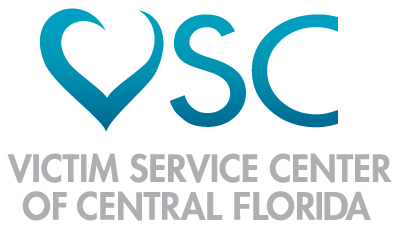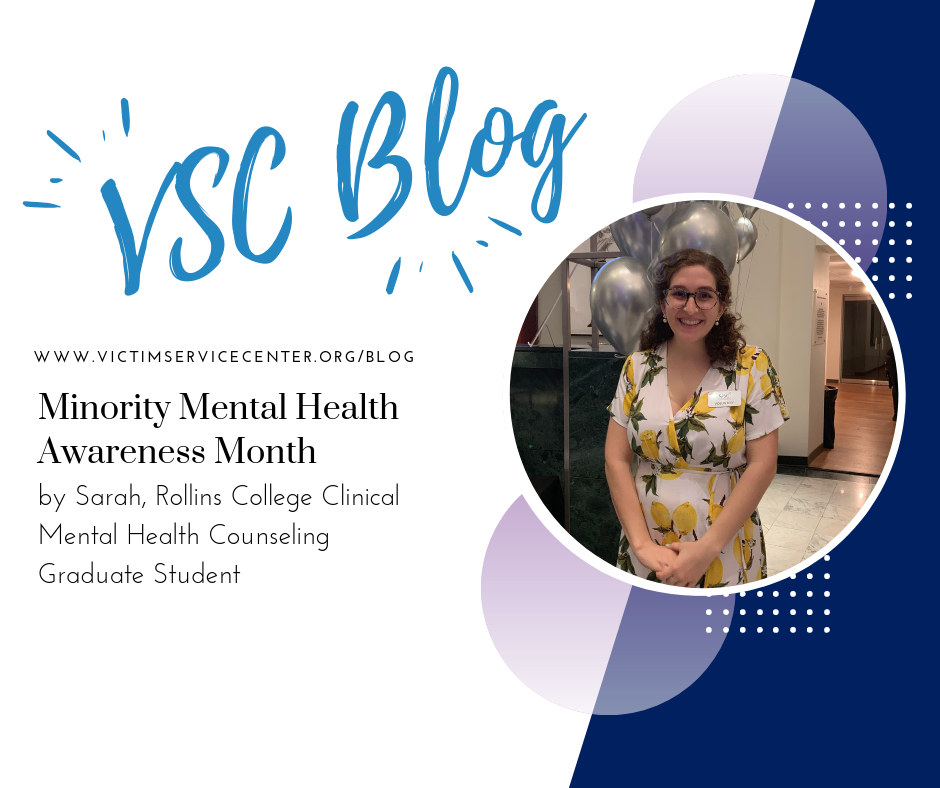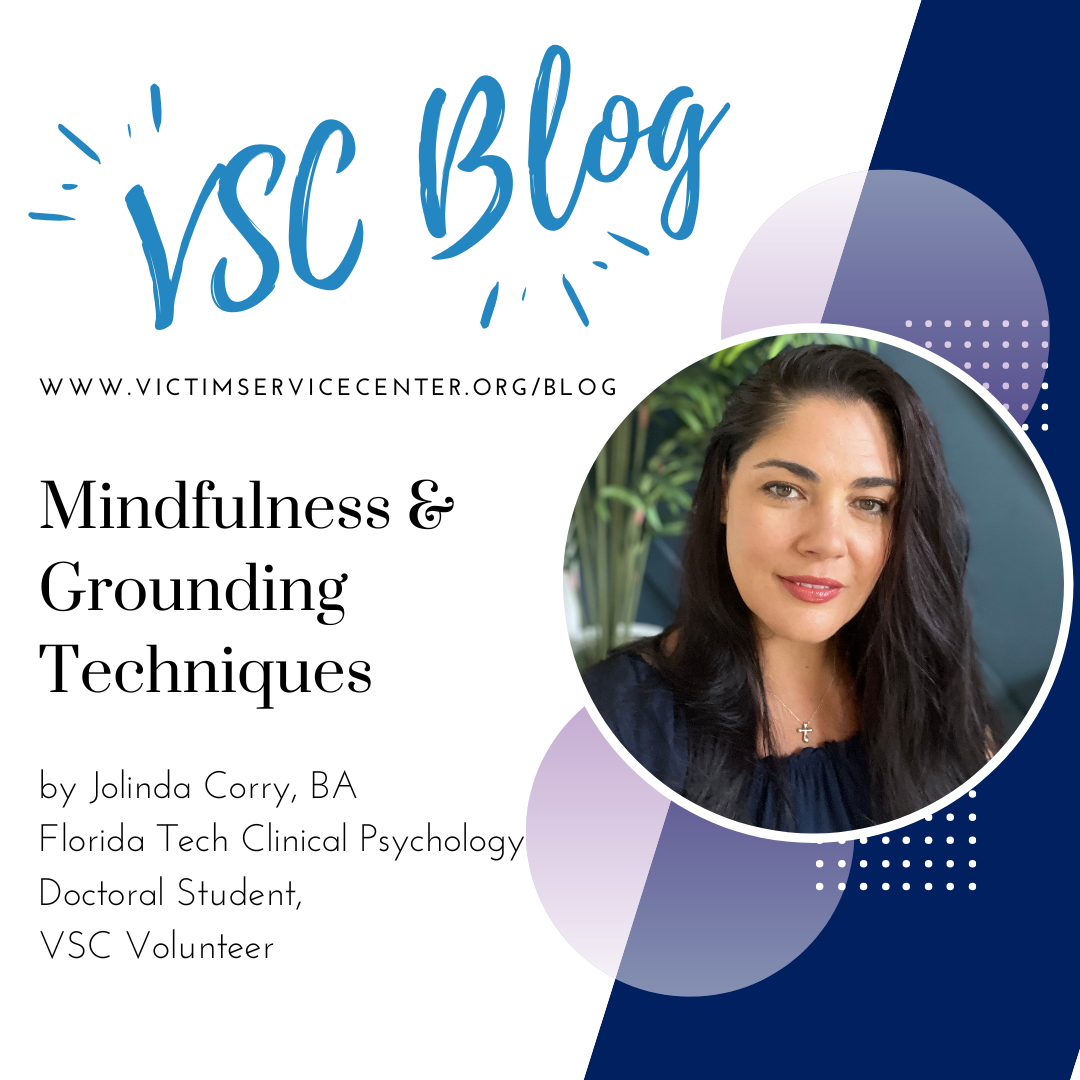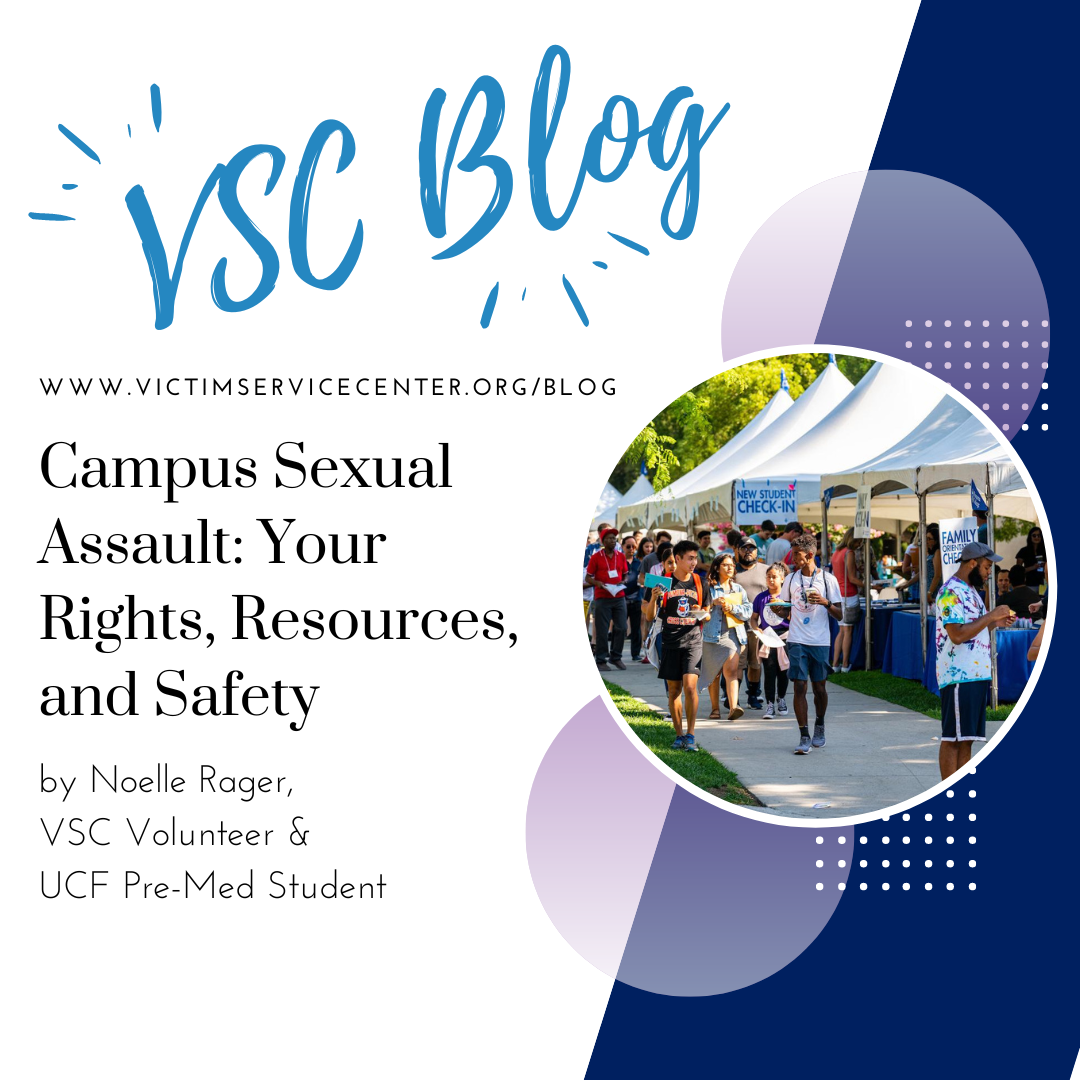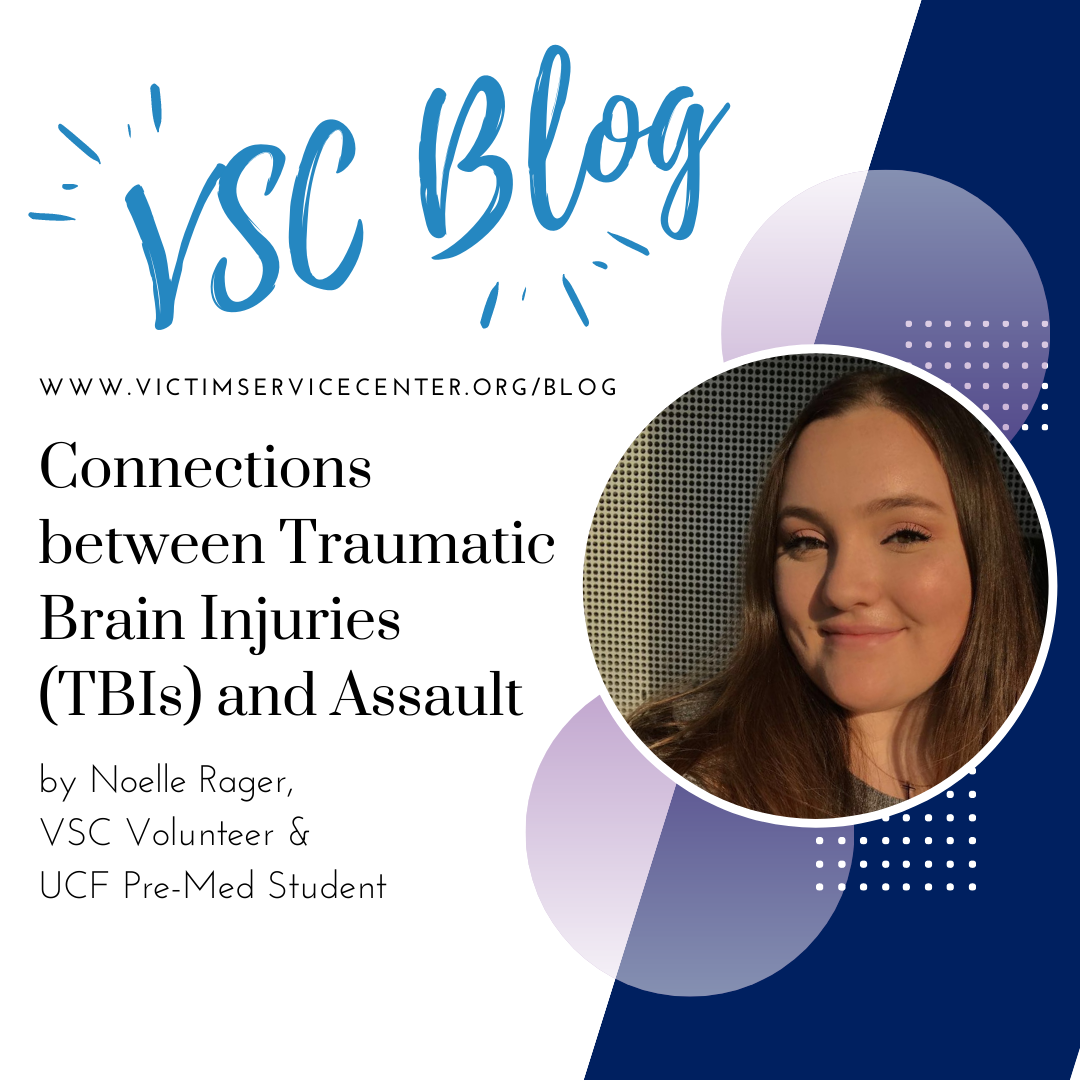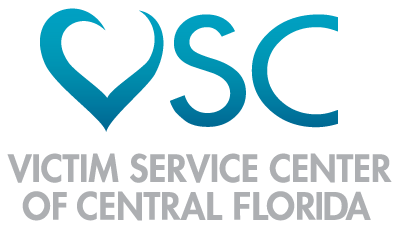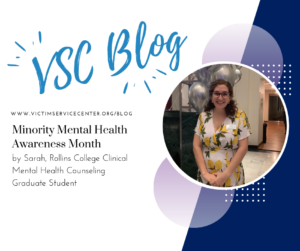
By Sarah, Rollins College Clinical Mental Health Counseling Graduate Student
With May being Mental Health Awareness Month, it may seem redundant or confusing to have an additional campaign for Minority Mental Health Awareness in July. The unfortunate reality is that this emphasis on minority mental health is necessary because of the pervasive influence that systemic oppression, stereotyping, and stigma have on well-being and access to mental health resources for various minority groups.
Who is a minority?
A minority identity is one of the many identities a single person holds and typically describes any identity that is not part of the dominant culture. That is, any identity that is not White, cisgender, male, heterosexual, middle-upper class, Christian, and able-bodied. Minority Mental Health Awareness is not meant to imply that people with dominant identities do not experience mental distress, trauma, and mental illness but to acknowledge that extra care and attention must be granted to promoting health for people of color, LGBTQ+ individuals, non-Christian religious/spiritual beliefs, and people from disadvantaged socioeconomic statuses.
Why does minority mental health matter?
According to the Substance Abuse and Mental Health Services Administration (SAMHSA),
- Over 70% of Black/African American adolescents with a major depressive episode did not receive treatment for their condition
- Almost 25% of adolescents with a major depressive episode in the past year were Hispanic/Latino
- Asian American adults were less likely to use mental health services than any other racial/ethnic group
- In the past year, 1 in 10 American Indian or Alaska Native young adults had serious thoughts of suicide
- In the past year, 1 in 7 Native Hawaiian and Pacific Islander adults had a diagnosable mental illness (source)
In general, racial and sexual minority groups report higher levels of anxiety, depression, suicidal ideation, post-traumatic stress disorder, and other mental health concerns. Cultural and societal oppression may lead to feeling unsafe or other feelings including shame, isolation, anxiety, and depression, which negatively impact an individual’s overall well-being and deplete an individual’s coping mechanisms in times of stress or crisis.
Barriers to seeking mental health care:
Even though treatment exists and healing is possible, there are several barriers to accessing mental health care. These barriers include:
- Lack of awareness or knowledge of available resources
- Underutilizing mental health services and early termination of treatment
- Financial cost or lack of insurance
- Social stigma shaming people who live with mental illness
- Office hours and location of treatment
For LGBTQ+ clients, there are additional concerns about experiencing homophobia or transphobia in the counseling relationship or a fear of being “outed” through the course of treatment. For clients living with a disability(ies), they may fear that the therapist will not understand or work with their disability.
For racial/ethnic minorities, there may be additional cultural barriers and cultural stigma impacting a person’s help-seeking behavior. These include:
- Conceptualization about the causes and cures of mental illness. For example:
- Some Asian cultures see no distinction between the physical and the mental. The “psyche and soma” are one in the same.
- Asian, Hispanic, and African American cultures may believe that mental illness can be treated through willpower and self-control rather than through an external helper like a counselor
- Cultural beliefs about seeking help. Mental illness is even more stigmatized in racial minority communities. For example:
- Asian Americans may be concerned about the “loss of face,” or social image necessary for group cohesion, if a person acknowledges a need for help outside the family or group.
- Mistrust of the mental health system because of injustices the field of psychology has done to racial minorities in the past, such as misdiagnoses, assessments based on White norms, and unethical research methods
- Therapy’s traditional focus on the individual’s thoughts and feelings goes against collectivist cultures’ focus on the group and family functioning. It may be harder to connect with an outsider (the therapist) about family or group dysfunction
- Language barriers (i.e., non-English speakers)
The structure of the mental health service field lacks an adequate number of culturally appropriate/sensitive services or bilingual and bicultural service providers, but most training programs now require specific courses in multicultural counseling to improve the field. If you are a member of a minority community, you deserve to receive treatment that works with—not against—your identity and your cultural values, norms, and expectations.
The Victim Service Center is here to help.
It is an unfortunate reality that chances of victimization are elevated for members of a minority community, be it from assault, abuse, molestation, hate crime, and other trauma that comes from being in a vulnerable position in society.
With Master’s-level trained advocates and therapists providing services, the Victim Service Center is dedicated to promoting minority mental health through direct service and advocacy. By providing free services to any victim or a violent crime or traumatic experience, VSC is cognizant of the financial burden that impacts an individual’s ability to heal. Additionally, we are proud to staff multiple bilingual victim advocates and therapists to recognize the needs of Spanish-speaking populations and are able to work with any language need through translation services. Through a partnership with the Zebra Coalition, we are also proud to staff an advocate specifically dedicated to working with LGBTQ+ clients, though any of our advocates and staff are ready and able to work with any client seeking services.
If you are ready to embark on your journey towards healing, call our office at 407-254-9415 to set up an appointment. If you or a loved one is currently experiencing a crisis related to victimization, you can reach a crisis counselor immediately on our 24/7 hotline at 407-500-HEAL.
Additional references:
https://www.mentalhealthamerica.net/conditions/infographic-minority-mental-health
https://www.ncbi.nlm.nih.gov/pmc/articles/PMC3574791/
https://www.nctsn.org/resources/public-awareness/national-minority-mental-health-awareness-month
https://www.minorityhealth.hhs.gov/omh/content.aspx?ID=9447
